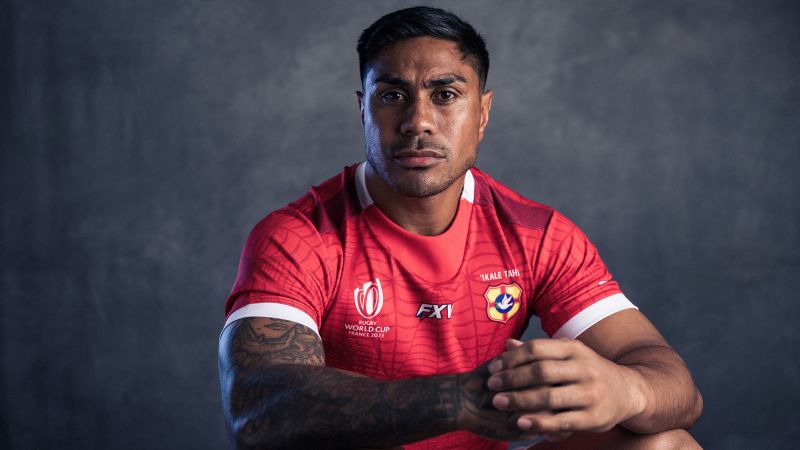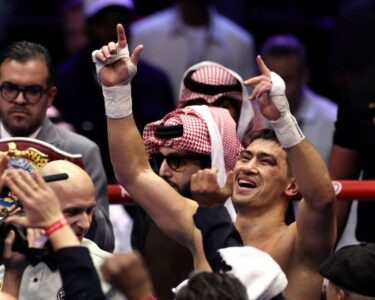CNN
—
Malakai Fekitoa may have been born and raised on the small island nation of Tonga, but his goal as a promising young rugby player was always to represent a country thousands of miles across the ocean.
Long before he had the chance to travel to New Zealand, Fekitoa set his sights on competing for the All Blacks – undoubtedly the most famous rugby team on the planet.
“It was always a dream of mine to play for New Zealand, even though I was born and raised in Tonga,” Fekitoa tells CNN Sport.
“Every young kid there either wanted to play for Australia or New Zealand. We always wanted to be like those boys on TV and we all wanted to leave straight after school or during our school years to find an opportunity to play rugby.”
Despite being Tonga’s national sport, opportunities to pursue a career as a rugby player in the country are limited compared to those in Australia and New Zealand, where there are clear pathways for young players to reach the top of the sport.
It was after playing for Tonga at the Wellington Sevens as a 16-year-old that Fekitoa was offered a place at Wesley College in Auckland, a high school that counts Jonah Lomu and numerous other current and former international rugby players among its former pupils.
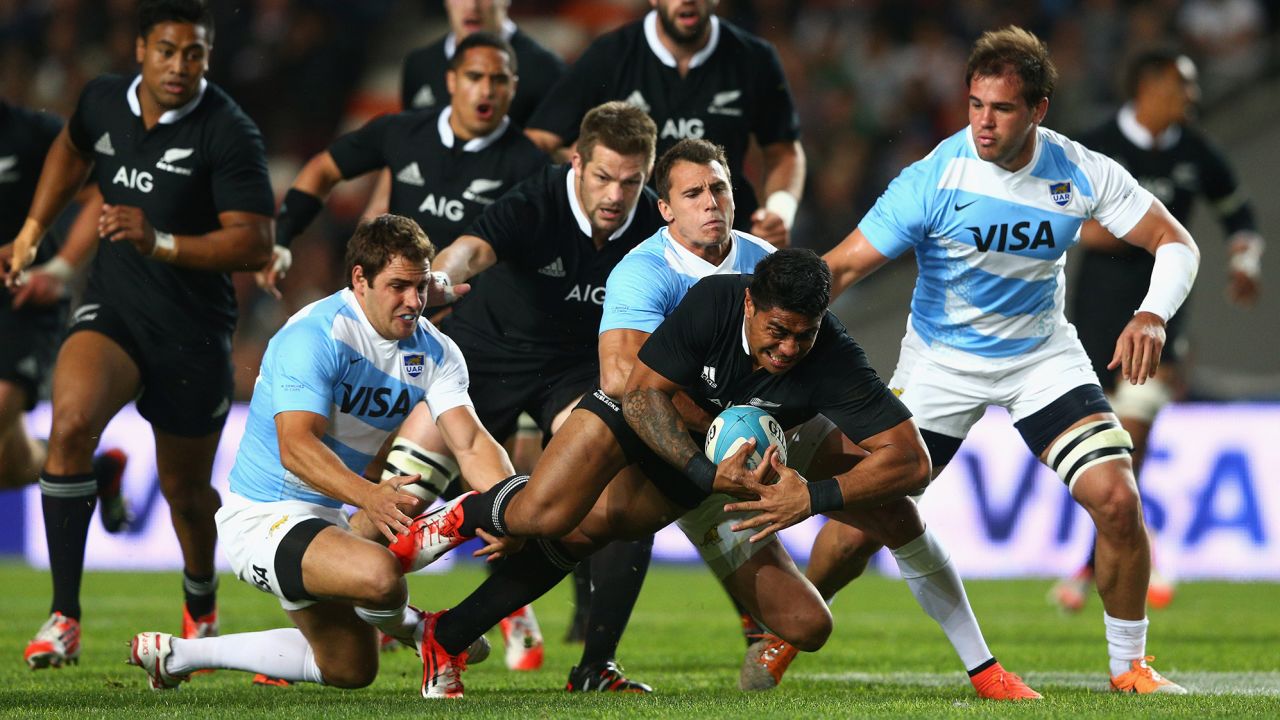
For Fekitoa, it would be a launchpad for his successful career. After becoming eligible to play for New Zealand under a three-year residency rule, the hard-running, big-tackling center went on to play 24 times for the All Blacks and was part of the team’s Rugby World Cup triumph in 2015.
“It was an experience of a lifetime, nothing like it will ever compare,” Fekitoa says about playing for the three-time world champions.
These days, however, he can be seen wearing the red jersey of Tonga, rather than New Zealand’s iconic black kit. His decision to play club rugby in Europe prevented Fekitoa from being selected for the All Blacks, but now the chance to compete internationally with the country of his birth has returned.
A rule permitting players to switch allegiances if they compete in an Olympic qualifying competition for rugby sevens – a shortened, seven-a-side format of the sport – enabled Fekitoa to represent Tonga in Monaco two years ago.
In some instances, rugby’s eligibility rules – as the 31-year-old’s international career testifies – allow a degree of flexibility over which country a player represents. In 2017, it was announced that players had to have residency in a country for five years, increased from three, in order to play for that nation.
Then from January 2022, a rule came into force enabling players to transfer to a country they – or a parent or grandparent – were born in, as long as they haven’t played an international game for three years.
The change has proved particularly beneficial for Tonga, which, as well as Fekitoa, has named former All Blacks Vaea Fifita, George Moala and Charles Piutau in its squad for the ongoing Rugby World Cup in France.
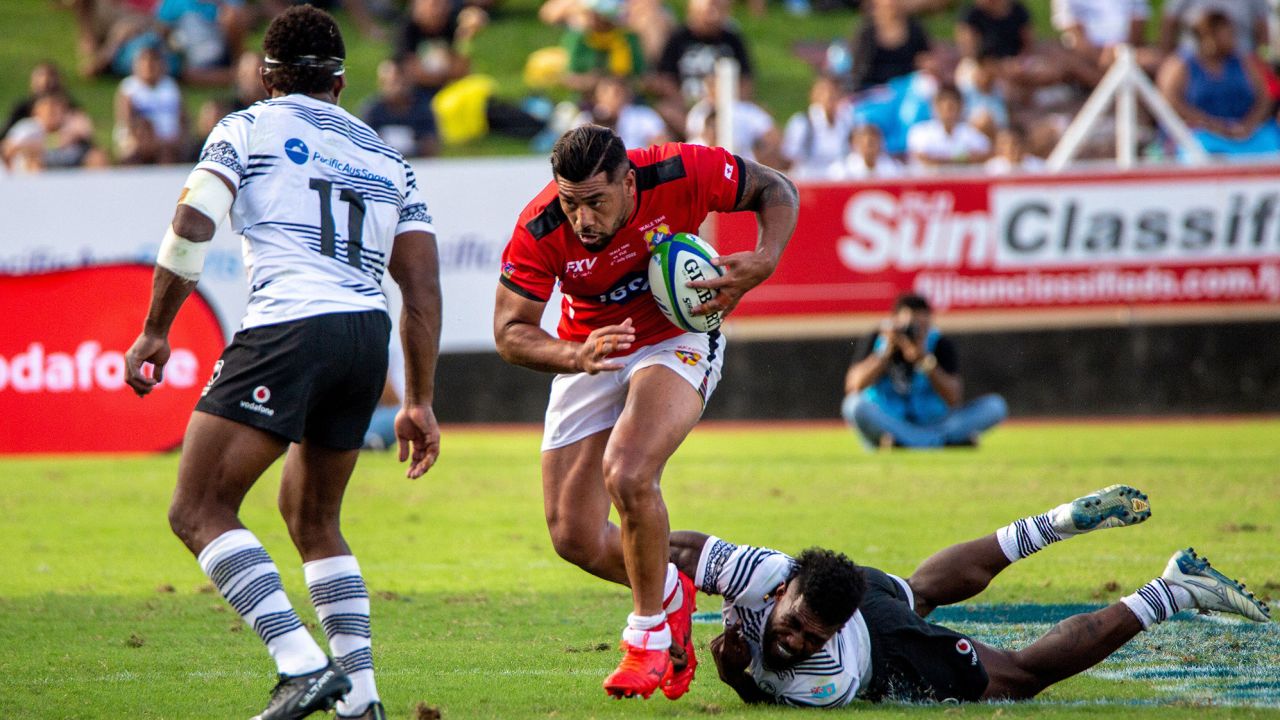
Adam Coleman, a former Australia international, is in line to make his debut for Tonga during the tournament, although another ex-Wallaby, controversial full-back Israel Folau, misses out due to injury.
Tonga begins its World Cup campaign against Ireland, the world’s top-ranked team, on Saturday, hoping to progress beyond the group stages for the first time.
“It’s different emotions and it’s a different feeling, playing for my own country where I was born and where most of my family are still,” says Fekitoa.
“It’s kind of a different drive as well. You always wanted to play at the time with New Zealand, the best team in the world … Once you achieve that, you want to be something different. And for me, this is a new purpose.”
Representing Tonga at the World Cup is the latest chapter in Fekitoa’s itinerant rugby career, which so far has taken him from New Zealand to club teams in France, England, Ireland, and soon, Italy.
“I’m still very, very young and I’ve got a lot to offer to the game, especially at the highest level,” he says. “With the rule change and everything that happened, I felt, why not give back, why not share my experience, and why not represent my family?”
With no chance of being selected for the All Blacks while playing in Europe, the decision to represent Tonga was perhaps an obvious one for Fekitoa. But the choice to move away from New Zealand in the first instance, he says, was “probably the hardest of my life” – particularly as he was only 25 at the time.
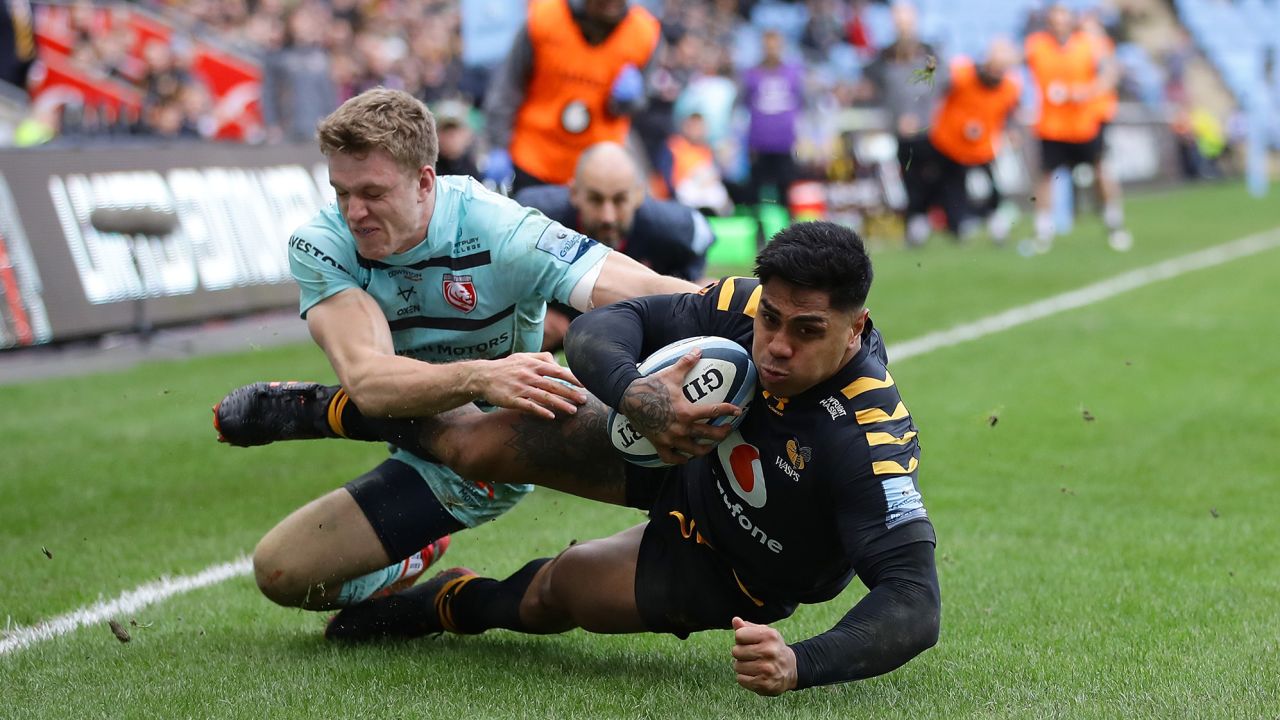
“That’s all I knew – my life based on rugby and the All Blacks in New Zealand, in your little bubble,” Fekitoa explains.
“Everybody knows you get everything or anything you want and you’re living your dream and you’re playing for the best team in the world at the time. I thought I would make a decision that will help me better my life and my family and support my kids when I retire.”
He adds: “I look back now and I wouldn’t change anything, to be honest. I’ve got to travel the world and meet a lot of great people; I met my wife, [I have] two beautiful kids now. I think probably that’s the best part of the decision I made.”
And Fekitoa’s family will be on the sidelines in France to watch him make his first appearance at a Rugby World Cup in eight years.
Representing Tonga – a so-called “tier two” nation because it doesn’t compete in top-level annual tournaments like the Rugby Championship or the Six Nations – means preparing for the sport’s showpiece event comes with challenges.
Budgets are smaller compared to “tier one” nations, teams like Tonga are assembled from players at clubs scattered across the globe and opportunities to play against the world’s best teams are scarce.
“For us, it could be something like there’s not many rugby balls,” says Fekitoa, “or deliveries don’t get in until two weeks later … Or they say a pitch is available now and then, tomorrow, we’re about to train there and they say, ‘No, it’s not available now. It’s been taken by someone else.’ Those little things kind of affect the preparation at times.”
Adding to the challenge, Tonga has been drawn in what can safely be called the “pool of death” at this year’s World Cup alongside Ireland, one of the pre-tournament favorites, South Africa, the defending champion and another favorite, and Scotland, now ranked fifth in the world.

Only against Romania will Tonga start a game as the higher-ranked team, though the inclusion of former All Blacks like Fekitoa has only increased the likelihood of the Pacific Island nation reaching the knockout rounds for the first time ever.
“It’s going to be very difficult,” says Fekitoa. “We spoke about coming out and doing well for us and, hopefully, upsetting a few teams. We wanted to obviously finish as high as we can. Playoffs would be pretty special for our little country and it’s doable.”
For Fekitoa, the World Cup will be a chance to watch his career come full circle, some 16 years after he first played for Tonga’s sevens team as a teenager desperate to make his way in the professional game.
Back then, Fekitoa was brought along to training by his cousin, initially to carry water and experience the atmosphere of the team. When an extra player was needed, he ended up taking part in a fitness test, beating everyone, and eventually earning a call-up to playing at a tournament in Samoa.
Fast-forward to the present day and Fekitoa is once again wearing the Tongan jersey, this time on the sport’s biggest stage. After the rule change, he thinks more All Blacks players will follow his lead by swapping allegiances.
“The Kiwi boys, some of them are really Tonga in their heart,” he says. “Most of them are born and raised in Tonga, or their parents are still there even though they play for New Zealand now.
“I believe those boys will switch at some point. It’s a matter of when they will, but they will one day.”


